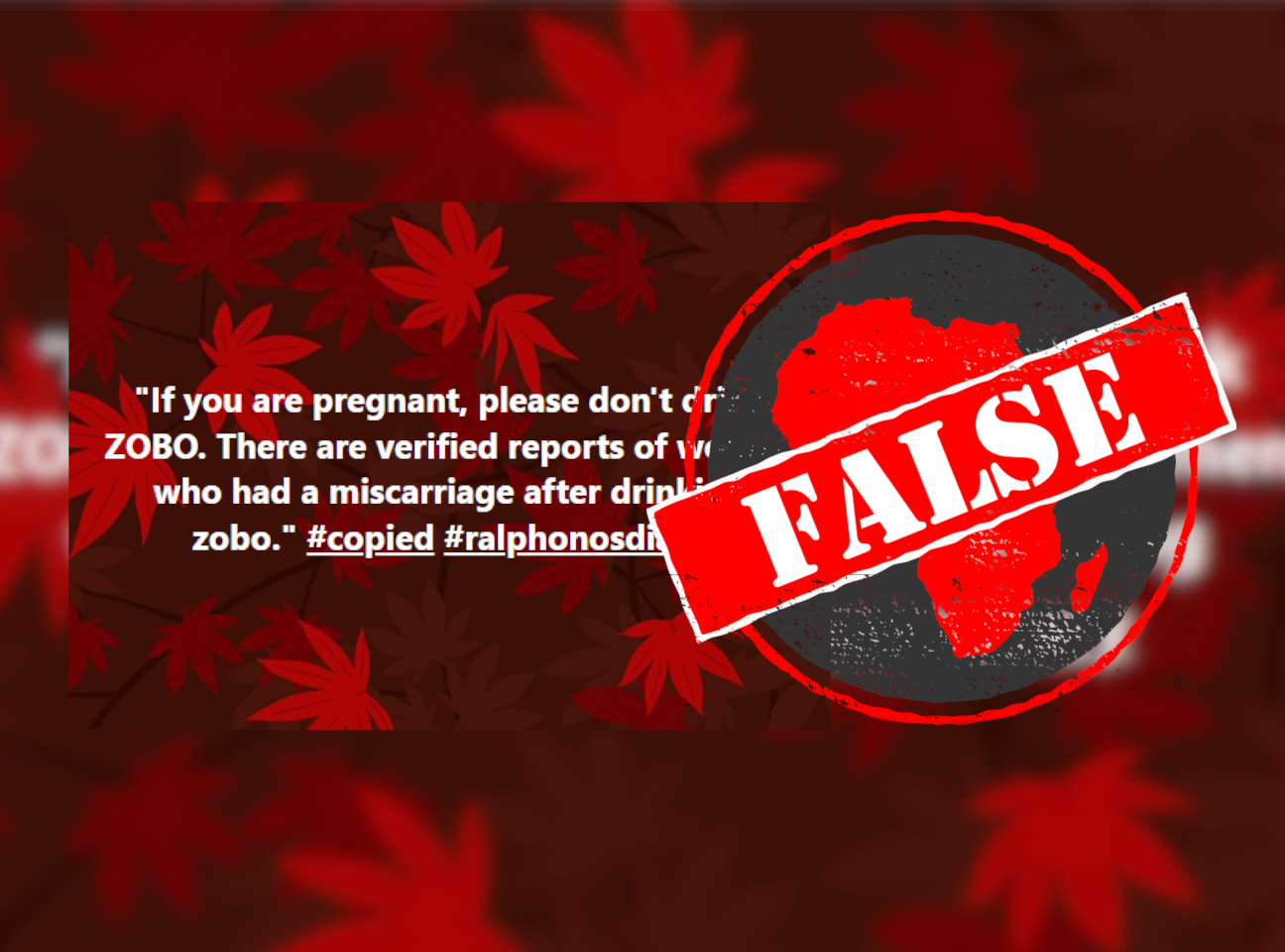A message posted on Facebook claims a local Nigerian herbal drink “causes miscarriage” during pregnancy.
“If you are pregnant, please don't drink ZOBO. There are verified reports of women who had a miscarriage after drinking zobo,” it reads.
Zobo is made from dried roselle plant flowers. Roselle, scientifically called Hibiscus sabdariffa, belongs to the Malvaceae family.
But should the drink be avoided during pregnancy?

No scientific evidence
Prof Cyril Chukwudi Dim, a consultant obstetrician and gynaecologist at the University of Nigeria, said he was unaware of such a claim.
“One cannot attribute a miscarriage to a particular substance because of one experience; that would be too much and damaging to that substance,” he said.
Another expert, consultant obstetrician and gynaecologist Prof Michael Aziken, said zobo was not a known cause of miscarriage because its chemical content had not been studied.
Aziken, who specialises in assisted reproduction techniques, said people should wait until concrete scientific evidence linked zobo to miscarriage during pregnancy.
“Zobo causing miscarriage should be regarded as a controversial claim until scientific proof says otherwise.”
There are no “verified reports” of women suffering miscarriage after drinking zobo.
Republish our content for free
For publishers: what to do if your post is rated false
A fact-checker has rated your Facebook or Instagram post as “false”, “altered”, “partly false” or “missing context”. This could have serious consequences. What do you do?
Click on our guide for the steps you should follow.
Publishers guideAfrica Check teams up with Facebook
Africa Check is a partner in Meta's third-party fact-checking programme to help stop the spread of false information on social media.
The content we rate as “false” will be downgraded on Facebook and Instagram. This means fewer people will see it.
You can also help identify false information on Facebook. This guide explains how.


Add new comment